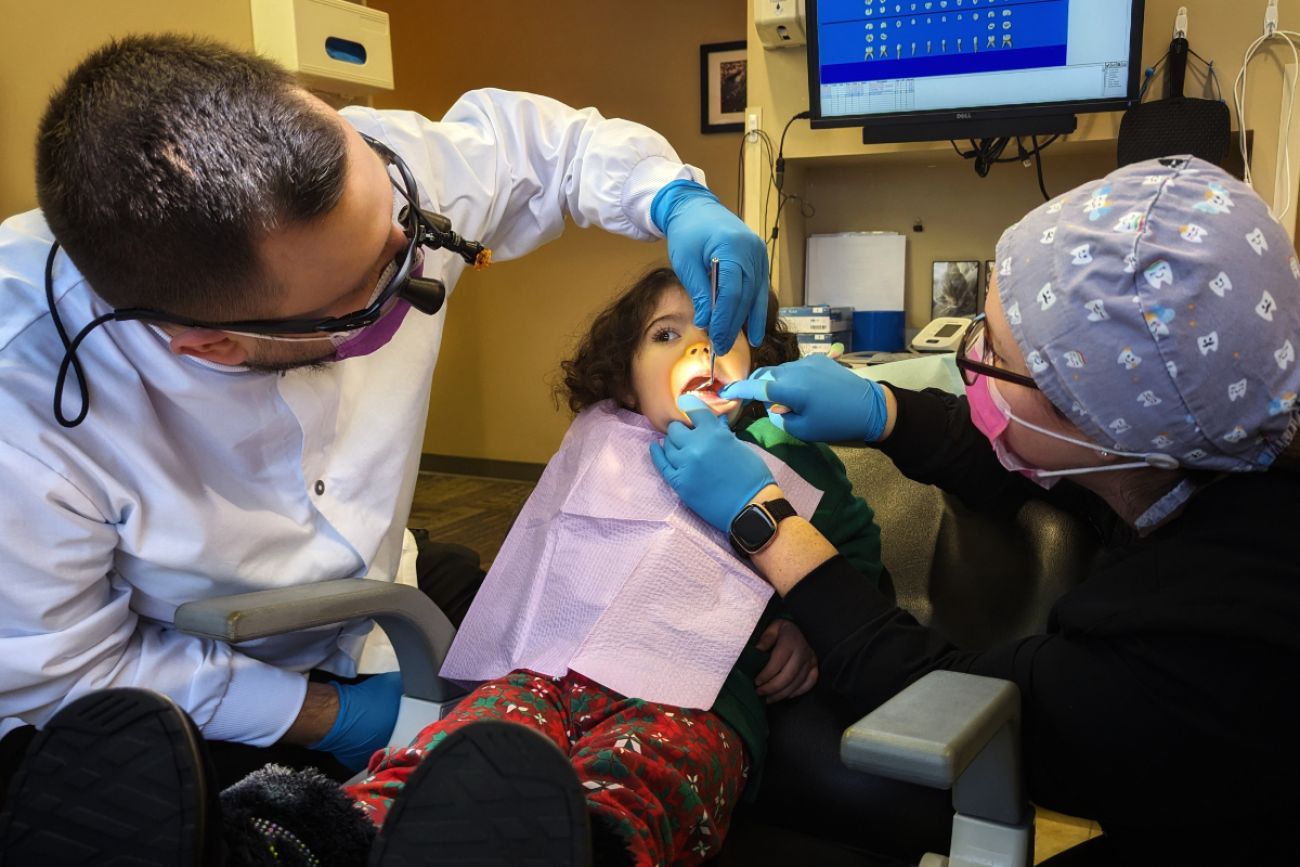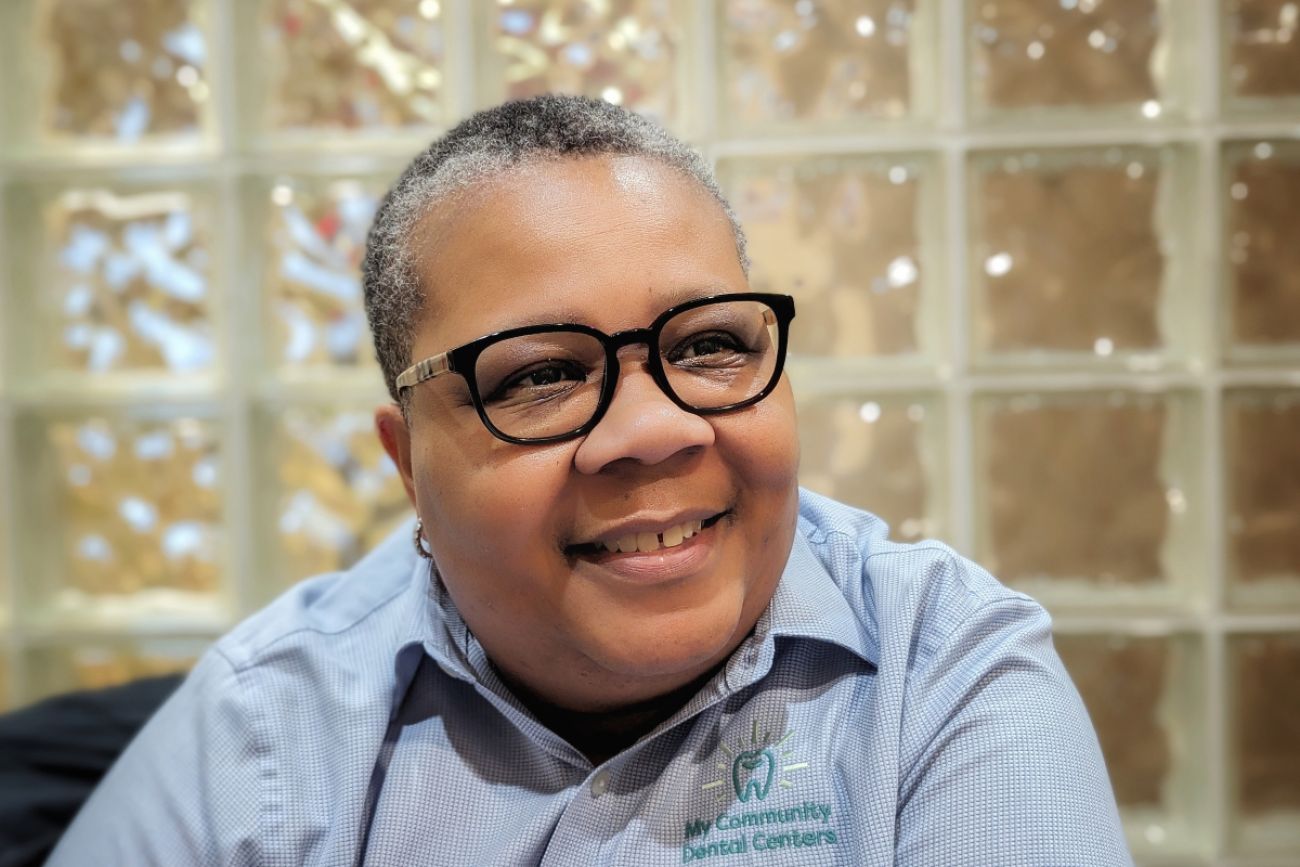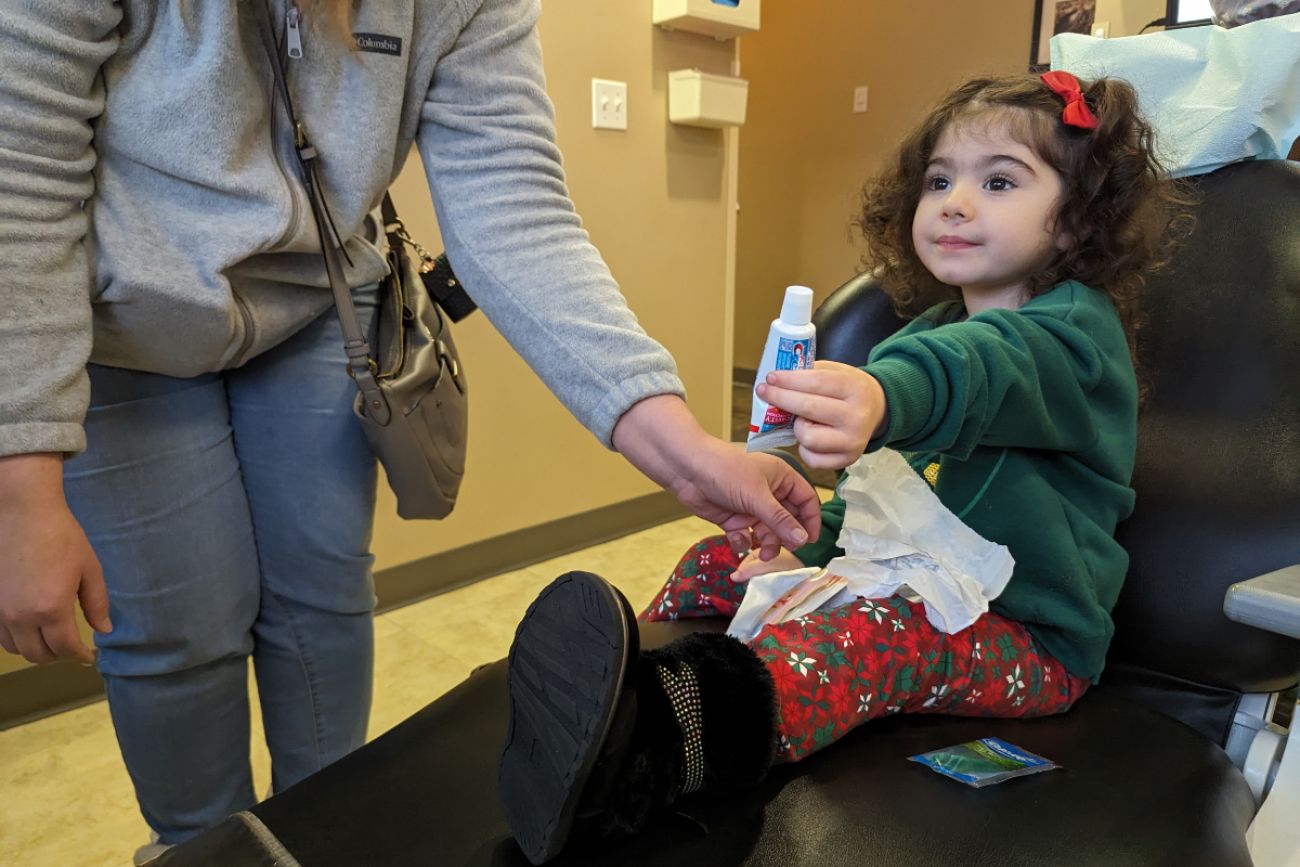For Michigan kindergarteners next fall, open your mouth and say 'ahh'

- A new state law ensures new Michigan students receive a dental screening, which kids already get for hearing and vision
- A top chronic disease among children, tooth decay can be a painful distraction from learning
- But what happens if there aren’t enough dental providers?
FLINT—Thousands of first-time schoolchildren now will get one-time dental screenings starting next school year, adding dental to visual and hearing screenings already required under Michigan law.
Kindergarten Oral Health Assessments — KOHAs — will be required statewide under a new law signed last week by Gov. Gretchen Whitmer. A child who hasn’t had a dental visit within six months of registering for kindergarten or first grade will be guaranteed a screening. In many cases, that screening will be provided by the local health department. Sometimes, dental hygienists may come to the school.
It’s a “big win for Michigan children” and the newest health strategy to combat the misperception that the condition of baby teeth doesn’t matter, said Kim Crabtree, executive director of the nonprofit Michigan-based, mobile hygiene unit, Smiles on Wheels.
Tooth decay remains the most common chronic childhood disease. By their 8th birthday, more than half of U.S. children (52 percent) have had at least one cavity in their primary teeth, more commonly known as baby teeth, according to the U.S. Centers for Disease Control and Prevention.
Research in 1989 — and repeated often, including in the 2000 U.S. Surgeon General’s report — found that tooth decay is responsible for 51 million missed school hours nationally each year, with poor children tallying “nearly 12 times more restricted-activity days than children from higher-income families.”
Those estimates have undoubtedly changed over the years, but more recent data suggests that childhood tooth decay is an ongoing, and possibly worsening, problem.
Among low-income Michigan children eligible for the federal Head Start program, more than 3 in 10 (31 percent) of the 1,561 children screened had cavities in the 2021-22 school year — a marked increase from 22 percent of Head Start children four years earlier, according to the state health department.
It’s possibly the result of a change in habits during the pandemic as children remained at home with all-day access to sweet foods and drinks and fell out of teeth-brushing habits, Crabtree, of Smiles on Wheels, said.

It’s not uncommon for infection from tooth decay to spread to the body, leaving children more prone to sickness and missed school days, said Holli Seabury, executive director of the Delta Dental Foundation.
“And it’s causing pain. It’s interfering with their sleep,” she said.
Long-term, decay can complicate eating and disrupt speech development, said Deborah Brown, CEO of My Community Dental Centers, which advocated for the new law.
Related:
“We need to get more children screened before the problems are so bad they need to be seen in an operating room,” she said earlier this month from the Centers’ Flint location, as Arabella Livingston, a Flint 3-year-old, was picking out stickers to celebrate her first visit to the dentist.
Seeing a dentist early seeds good habits that can blunt the risk of a number of serious health conditions associated with poor oral health, including cardiovascular disease, complications with pregnancies, pneumonia and even endocarditis, an infection of the inner lining of the heart’s chambers or valves.

The oral assessments required under the law won’t include cleanings or treatment — rather, they are a basic exam with a mirror and light to identify decay and other issues.
Dental providers will then be required, under the law, to notify parents that more treatment is needed. For children from low-income families, the cost of care will be covered by Healthy Kids Dental, the Medicaid plan.
Michigan parents can seek a religious exemption to the dental screening, and a child cannot be excluded from school attendance without the exam.
The law adds dental exams to vision and hearing screenings for school children that have been required for nearly 75 years in Michigan and screen about 1 million students each year in several grades. Through the efforts, possible hearing problems are detected in about 1 in 20 students; possible visual problems are detected in about 1 in 10 children, according to the state health department.
Who will do the job?
The new law makes permanent a pilot program conducted through 22 local health departments. That effort screened more than 10,000 children last year, referring 2,479 of them for follow-up dental care, according to the Michigan Department of Health and Human Services.
The state health department estimated the total cost at $4.5 million each year, but the Delta Dental Foundation granted $1.5 million to MDHHS to help defray start-up costs.
But some have wondered how quickly the program can be ratcheted up given Michigan’s well-documented lack of health workers, including dental hygienists who may conduct the screenings, said Norm Hess, executive director of the Michigan Association of Local Public Health.

In fact, dental assistants and dental hygienists ranked among the most desperately needed health care workers, due to low wages and high turnover, according to a report earlier this year by the Michigan Health Council, an Okemos-based nonprofit focused on workforce issues.
And if a child needs cavities filled?
Even with robust insurance, “it’s not that easy to get into a dentist right now,” Hess, of the public health association, said. “It’s one thing to know the kid has a problem, but to get them settled with their own dental provider — that’s another thing.”
See what new members are saying about why they donated to Bridge Michigan:
- “In order for this information to be accurate and unbiased it must be underwritten by its readers, not by special interests.” - Larry S.
- “Not many other media sources report on the topics Bridge does.” - Susan B.
- “Your journalism is outstanding and rare these days.” - Mark S.
If you want to ensure the future of nonpartisan, nonprofit Michigan journalism, please become a member today. You, too, will be asked why you donated and maybe we'll feature your quote next time!








